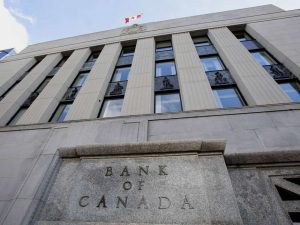The Bank of Canada announced this  morning that it is maintaining its target for the overnight rate at 1 per cent. In the press release accompanying the decision, the Bank noted that inflation has edged up slightly and is expected to return to its target of 2 per cent in the second half of 2018 while economic growth is forecast to slow in the final six months of this year following a very strong first half.
morning that it is maintaining its target for the overnight rate at 1 per cent. In the press release accompanying the decision, the Bank noted that inflation has edged up slightly and is expected to return to its target of 2 per cent in the second half of 2018 while economic growth is forecast to slow in the final six months of this year following a very strong first half.
The Bank emphasized that it will be cautious in making future adjustments to its policy rate as it assesses the sensitivity of the economy to higher interest rates.
There are several factors influencing the Bank’s decision to move to the sidelines. Recent economic data points to a slowing of growth from the soaring heights of the first half of 2017. Moreover, inflation remains muted and newly announced tightening of mortgage regulations will have a significant impact on households, particularly in a rising mortgage rate environment. We expect that the Bank will take a wait and see approach over the next few months as the impact of its previous rate tightening takes hold.






 Effective January 1, 2018, first-time home buyers who don’t require mortgage insurance — those with a down payment of 20 per cent or more — must qualify for their mortgage at a higher rate.
Effective January 1, 2018, first-time home buyers who don’t require mortgage insurance — those with a down payment of 20 per cent or more — must qualify for their mortgage at a higher rate.